U.N.I.T. can't decide whether to battle Global Warming, a flesh-eating virus, nuclear holocaust, dinosaurs or planet-usurping man-geckos.
The Doctor & Co arrive on Marinus and are blackmailed by Arbitan to go on a suicide mission to retrieve the five titular micro-circuit keys.
Podcast: Play in new window | Embed
Here’s all the backstory you need to know:
Arbitan built a device called The Conscience of Marinus, that got into everybody’s mind, spreading a message of peace and essentially removing all evil thoughts and intentions from the populace. However, one dude, Yartek, somehow developed an immunity to the Conscience of Marinus and began actively resisting the machine, in which instance Arbitan hid the five keys that power his invention on five different locations on Marinus. Fast-forward to the relative present, Yartek is now leading his rebel force of S&M scuba divers (The Voord) to the island in an attempt to take over the contraption and use it to seize control of Marinus, and Arbitan wants to get the keys back to power up the machine again. Yeah, it doesn’t make perfect sense, but there you have it.
Anyway, The Doctor, Susan, Ian and Barbara head off on what is going to be one of the most epic journeys ever, battling brains in jars (The Morpho), heartless murderers, super-juiced plants, sexual predators, arctic temperatures, stock-footage wolves, sneaky boobytraps, medieval knights, evil Voord… and the law.
We loved this Doctor Who story. William Hartnell may be absent for a large portion of it – as per usual – but the travellers’ group dynamic is strengthened in a credible and fantastically entertaining way. We had a lot to say about this one, so here is another super lengthy episode review, but it’s well worth a listen.
And if that’s not incentive enough, we might add that in reviewing these Doctor Who episodes, we somehow managed to make connections between them and Star Wars, Indiana Jones, The Matrix, Dune, They Live, Harry Potter, Night of the Living Dead, Day of the Triffids, The Stepford Wives, The Great Escape, South Park, James Bond and Flash Gordon.
Furthermore, here’s a Who Back When first! We’ve also included a fan mini-review of The Keys of Marinus! Big thanks to Will for sharing his thoughts on the show.
(The Ratings and Reviews of this Doctor Who story kick in at the 1h36m50s mark.)
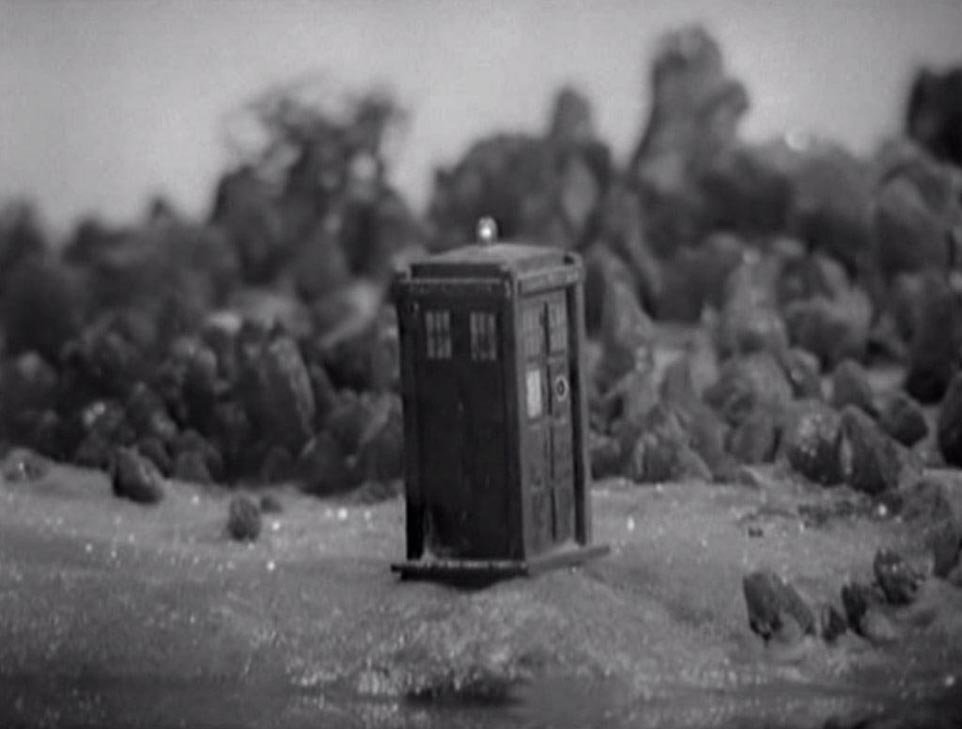

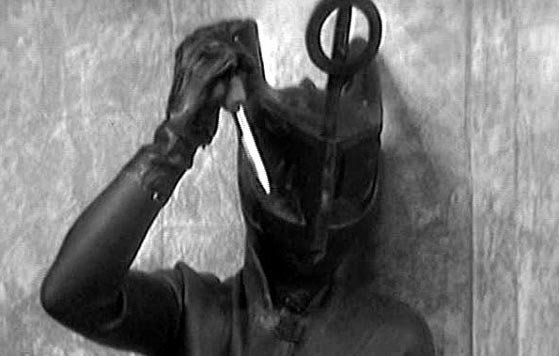

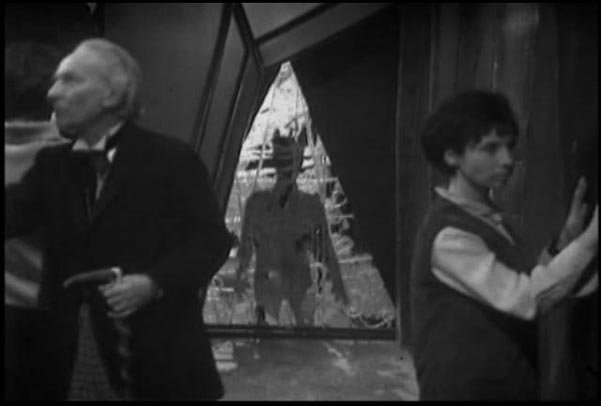

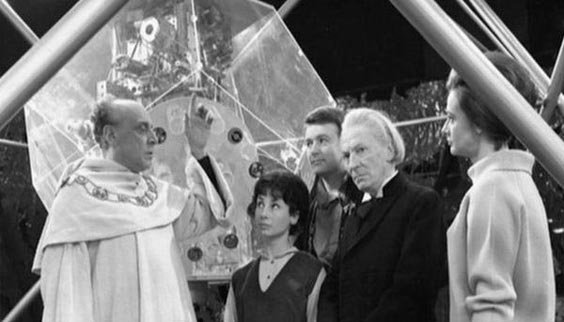

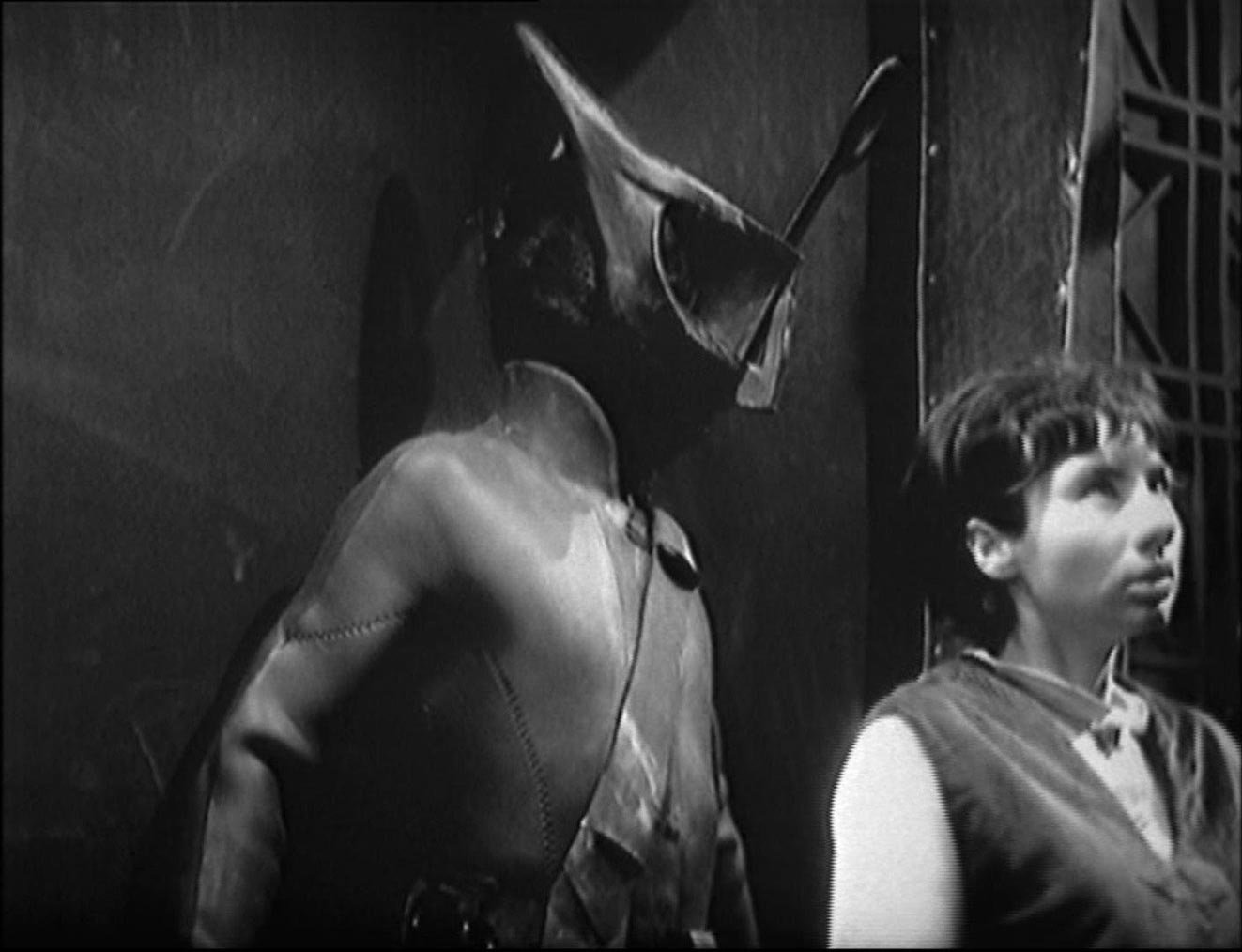

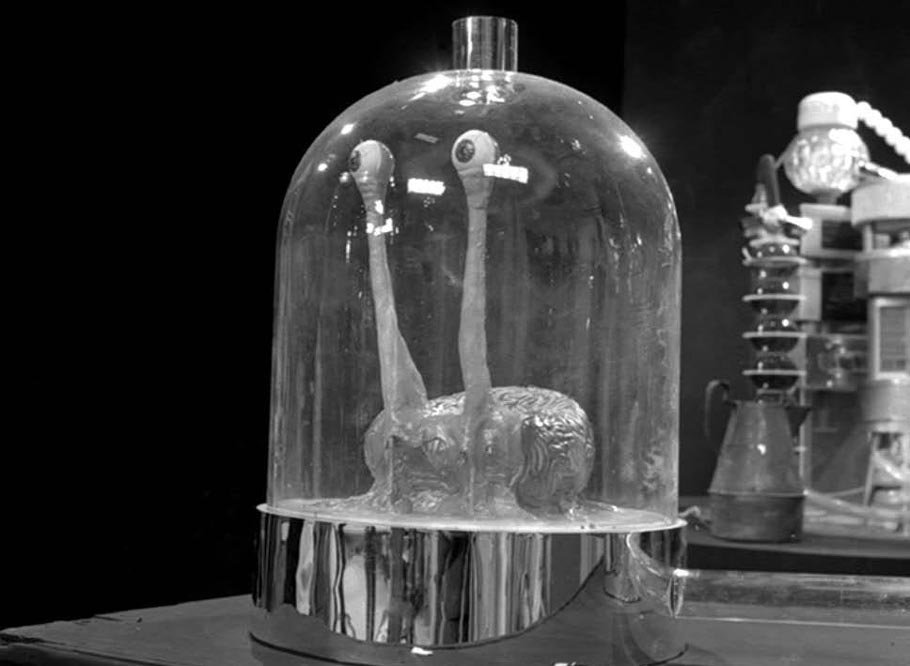



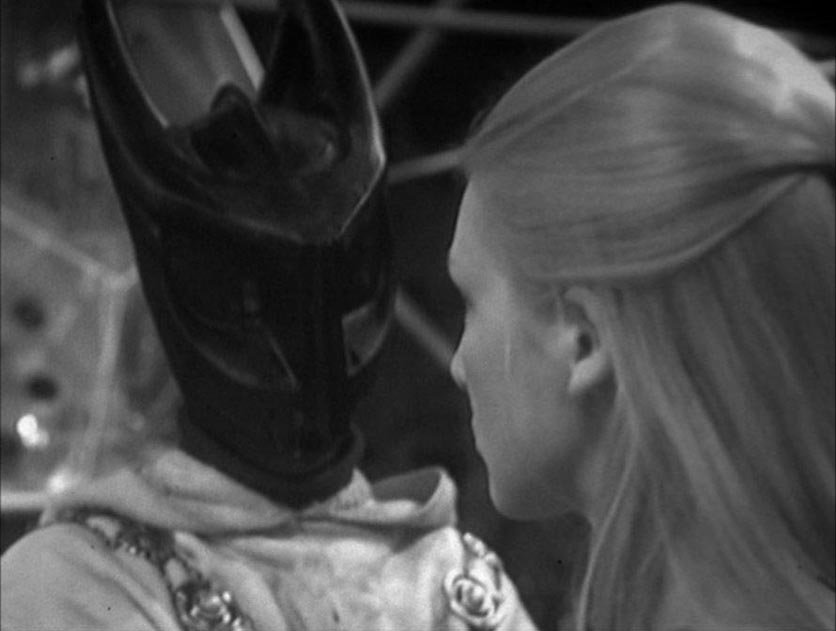

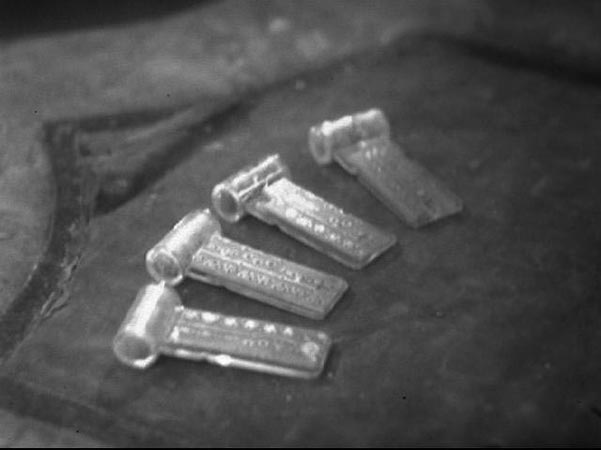


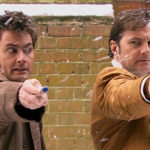





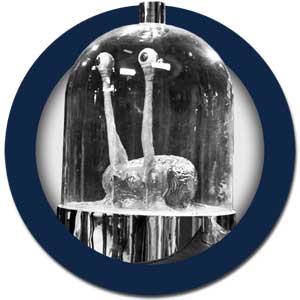
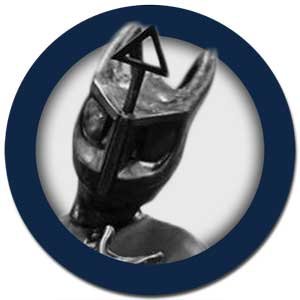







William Hartnell had been working without stop from October to April on “Doctor Who”. He took a holiday during the filming on “The Screaming Jungle” and “The Snows of Terror”. You can see that when he returns in “Sentence of Death” he is energetic and refreshed. This was the first time the lead actor had been absent in this way; nonetheless, Hartnell receives an on-screen credit for these episodes. His co-stars will also take time off for holiday during production of upcoming stories.
In episode 5, when the Doctor “stumbles” over the “I can’t [im]prove at this very moment…” it was a scripted stumble.
THE KEYS OF MARINUS
I loved this story. Every episode was very different which made it constantly feel fresh and not repetitive which is a problem that I think Doctor Who had in these early days.
Something great about this story was that the opening and closing shot were the exact same but in reverse. I thought that was very clever.
The most disappointing thing about this episode was the trial of Ian. It was a great idea but the execution (no pun intended) was only okay. Also, the ending felt a bit rushed.
My rating for this story is 4.3/5 which is my best rated story so far.
One of my absolute all time favorite Dr who series ever. This could have easily been a new who story. The world building is what makes it here. There are lands, people, plants, cultural references that parallel us, and yet are wholly unique. The characters and acting here are, with few exceptions amazing. Those that fail to reach that level are still more than good.
The trial is fine, but the investigation scenes are just a little bit trite. The characters are sometimes investigators, and sometimes led inevitably by the nose.
Other minor bothers of mine involve the endless hallways which I think even in those days could have been done slightly better, and the whole premise of the machine not fully adding up. The machine is turned off and the keys hidden because they don’t want the voord to get the machine. However now that the voord are coming Arbitan needs the keys to once again turn on the machine and stop them. Then its okay again when the machine ia destroyed. I still can’t find a back story to justify that logic.
This is precisely the goal of btr productions fan audio drama “Marinus Alone”, a prequel story well worth listening to. It does a great job at exploring the established culture and almost succeeds in solving this episode’s one minor plot point.
I wish big finish would come back to this world (perhaps they have?…anybody?). I’d love to visit this setting just as much as any returning villan.
Oh and Marco Polo not withstanding, this would get my vote for ” I wish it were in color”.
4.8
‘The Keys of Marinus’ is the first standalone sci-fi story in Dr Who. It isn’t setting up some massive concept like the TARDIS or the Daleks. It’s not an experimental psychodrama or a pure historical. It’s what would become the bread and butter format of the Dr Who series and as such it’s generally pretty enjoyable.
Arriving on an alien beach surrounded by very escapable booby traps, the Doctor and company are blackmailed by otherwise affable monk-scientist Arbiton into travelling around the planet Marinus collecting the titular ‘Keys’. When gathered, these will be used to turn on a mind-control machine that will make everyone on the planet peaceful, happy and productive citizens.
THE MAJESTY
The idea of the mind-control machine (though never properly explored) is a good set-up, and the idea of Arbitan’s tower being besieged by rebel Voord in groovy wet suits is also fun. Sadly we don’t get to see more of this throughout the story. The Voord are only bookends, and the machine is only a plot device.
Two of the set pieces are magnificent. In the Castle of the Velvet Web, the crew are hypnotised by jellyfish brains in jars. They believe they are living in luxury while really they are in squalor. It’s a great idea, and it’s very nicely done. The brains, when we meet them, are suitably revolting.
Similarly the Screaming Jungle is an excellent idea, unfortunately too short. Ian and Barbara are under siege in a small house. In scenes reminiscent of Romero’s “Night of the Living Dead” or Hitchcock’s “The Birds”, our heroes scream and hit things with other things as plants break in through the walls. Wonderful stuff!
THE MISERY
The episodic nature of this story means that none of the elements can be fully developed. Part One is set by Arbitan’s tower; Two in the Castle of the Velvet Web; Three in the Screaming Jungle; Four on a frozen mountain range; Five and half of Six are set in the ‘civilised’ city of Millennius and the finale is back at Arbitan’s tower.
Sadly the longest and most developed sequence – the courtroom drama in Millennius – is one of the weaker sections and although it is a cool idea to have a courtroom drama in Dr Who, the twists and turns are conducted in such a ham-fisted fashion that there’s little tension and lots of boredom.
Equally, the mountain sequence suffers from too little logical coherence and too much polystyrene snow.
MAGICAL MOMENTS
The Doctor: “A frozen sea? Impossible in this temperature. Besides…. it’s too warm.” (Thanks for clarifying that, Doc!)
The Doctor: “If you had had your shoes on, my boy, you could have lent her her’s.” (Ummm… what?)
Apparently if you are a Voord, trying to hide, all you need do is crouch down near a tiny rock and nobody will ever see you.
The crew are seen so often in Episode One that you start to wonder if it is deliberate – legs behind doors, randoms walking into the background of shots, shadows of mikes and cameras and people everywhere.
A Voord falls down a hole, turning in mid-air to reveal it is a totally flat cardboard but out.
Any time the TARDIS crew decide to use their time rings to move from place to place, they make sure they move in front of a large black background before they do so.
There is a charming moment when the crew gather in the Castle of the Velvet web. They are all ogling over the food. (“Perhaps if your majesty would stop hogging the grapes, we could all have some” – “I say! Is that a pomegranate?” – “Truffles! I do believe they’re truffles!”) Mind you, all they have in the TARDIS is the rather dodgy ‘bacon and egg bar dispenser’ so who can blame them.
Barbara gets a magnificent scene where she grabs a rock and attacks some hypnotic jellyfish brains in jars. Schoolteacher Barbara is now Badass Action hero Barbwire!
Episode Four contains surprisingly adult content with an attempted rape on Barbara. Despite ending up in a ‘running-round-and-round-the-table’ routine, it’s a serious threat, and again Barbara comes out strong, biting her attacker and wielding a red-hot poker.
The trial in the city of Millennius is presided over by a tribunal of men who – with tall hats and long beards – appear to have been fashioned on the Old Testament high priests. When they are all nodding their heads in unison, beards and hats flapping about, they are highly entertaining
The Doctor: “I can’t improve…. I can’t prove that Chesterton is innocent”. (Certainly your line delivery hasn’t improved!)
The moment the door has close, Karla, recently widowed, stops crying and bursts out into an evil cackle that would put any Disney villain to shame.
Susan celebrates being set free by shouting “Whoopee”. Literally.
One of the Voord trips over its own flippers. I love these moments.
There’s a deliberately comic moment when Ian and the Doctor both cautiously peer round a corner at knee hight, only to leap out of their skins as they come face to face with each other. (The Doctor: “What are you playing at? You’re all running around here like a lot of scared chickens!”)
IN SUMMARY
The story is too episodic to hold together as a unity. Had the Voord rebels been chasing the Doctor and the crew through the locations; had we split the team up between locations and intercut the stories; had we been having an ongoing discussion as to the morality of the mind control machine – then we would have had a better story. Some set pieces were brilliant, others were lame. On average, the story is average. Extra points for all the magical moments!
Overall: 3.5
The Keys of Marinus is a thoroughly enjoyably adventure. The cast have relaxed into their characters and totally get the interrelationships with each other. They are clearly enjoying themselves and it rubs off on the viewer.
There are many ridiculous but rather brilliant moments. They include the crew leaning to rest and falling through the same trap door. Not seeing voord standing right beside them. Ian not recognising it’s clearly a voord under Arbitan’s hood. The culprits giving themselves away in the court episode. Needing a bridge to cross a very jumpable gap. Thinking Arbitan is a great man after he forced them to go on a suicide mission. What were the knights in the ice? So many, but such fun.
One suspects that Mr Hartnell didn’t take the scripts for the final episodes to read on his extended holiday as he seems to have only just glanced at them briefly before performing them, so many fluffs. But he brings his usual brio and the doctor is a joy to watch. Even if he doesn’t do a whole lot. It’s the Ian Chesterton show this one.
The change to the court scene is somewhat discombobulating on first viewing and the very earth-like setting is the same planet that has aliens in glass jars!? Overall, the changing plots keep things moving at pace and leave the viewer wanting more. There are some really good ideas, it’s shame they couldn’t be explored further and played out more; The Velvet Web could easily be a full story in its own right. The opening episode features some great world building. Excellent work Terry Nation!
Normally if things don’t make sense, it can ruin a story but here it’s simply charming. Coupled with the many great moments, interesting ideas and the joie-de-vivre of the cast, they make this a super fun and enjoyable story to watch. A big thumbs up for one of the best First Doctor adventures.
Rating: 4/5 genuine keys of Marinus.
Now that you have reviewed all classic Who, I am trying to catch up. I only discovered your podcast in 2020, and have been an avid listener ever since. I listen to you on Spotify, but they don’t have the earliest of your show, so I think the first one I heard was “The Moonbase”. I listened to a few of the older podcasts, both classic and new, for a while before realising that you were still going, so I skipped a bunch to catch up before you got to my favorite stories from my youth. Now I am going back through, watching all the old classics I never saw before (I had some DVDs of a few, but Britbox has all the episodes that are complete serials available for streaming in the US (where I live).
I had long been wanting to watch “The Keys of Marinus” because you refer back to it so often, especially in reference to “Voord hiding”, and I never quite knew what you meant, but could tell from the context and actually though at first you were saying “vault hiding”.
Like the rest of you, I found it unique in its conception, and entertaining to watch. It is so different from the others; I don’t think they had a firm idea what the really wanted as a format for the show, so they were doing a lot of experimenting. I thought it was funny that William Hartnell was absent for two and a half episodes; Ian is definitely more of the main character than the Doctor at this point.
The two things i found troubling were that Arbitan is killed at the end of episode one, but the team don’t know and still follow his quest, and that Altos’ friend is the murder victim, but that was never given the weight it should have had for Altos.
I give this serial 4.5 out of 5
Tanz
This is the first time that I find myself completely flabbergasted by the Who Back When crew’s ratings. I liked The Edge of Destruction much more than you guys, enough to give it a 3.3, but I could understand why you rated it so low. And in a similar vein, I get why you rated An Unearthly child higher than my 3.1. But with this one, we could not be more different. I thought this serial was miserable. I usually like to start off these reviews by highlighting what a serial does well. And while there were some parts that weren’t terrible—like some bits in the city of Morphoton and others on the mountain with Vasar—I want to focus instead on two things that this serial does incredibly poorly.
The first is worldbuilding. We get to spend six full episodes—over two hours—with our heroes on the planet of Marinus. We are introduced to the planet by Arbitan, who takes us through the history of its pinnacle of technological achievement: the Conscience of Marinus. But what do we really learn about it? How did its people react to the machine being shut down? How do they feel about the prospect of it being turned on again? How far apart are the locations which the main characters visit? Do the people of Millenius know about the city of Morphoton? If so, why have they just allowed the people there to languish under the rule of the Morphos? If not, how does a planet have a machine capable of global mind control but nothing which allows for global travel? Why is the jungle growing so rapidly in Part 3? What is the origin of the knights in Part 4?
In my opinion, these worldbuilding issues stem directly from the scope of the serial being waaaay too large. I don’t feel the writers and producers were equipped to pull off a serial with this large of a scope this early on in the life of the series. They didn’t have the resources, neither the time nor the finances. Instead of creating a massive serial full of holes, the writers could have narrowed the scope and simplified the plot. How about three keys of Marinus, with two episodes to focus on each? Let the plot elements breathe, and eliminate whatever adds unnecessary complication to the world being created on Marinus. Trim the fat.
The second issue is the overly contrived nature of the plot. Sometimes, events need to happen in such a way that unlikely things will happen. A character needs to be in a certain place at a certain time to hear a crucial piece of information, or it needs to rain in the desert in order for the antagonist to become trapped in quicksand, that sort of thing. The more unlikely the event, the more this event feels contrived or unrealistic.
The Keys of Marinus, more than any other serial thus far, was full of contrivances to the point where the plot came across as nearly impossible. Here’s just a few: 1) Despite Arbitan having weathered countless attacks from the Voords in the past, Ian just so happens to be there the one time Arbitan is about to be finished off. 2) In a very short time after the Morphos are destroyed, the Doctor is able to find Altos, discover that he had been sent by Arbitan, and find Altos and Sabetha’s lost travel dials, all offscreen. 3) The group arrives in the jungle just in time to retrieve the key, on the same day that the jungle is set to destroy the building. 4) The cave where Varas saw Susan and Sabetha just so happens to be the location of the third microcircuit. 5) Ian just so happens to arrive in the maximum security vault at the same time that a crime is being committed, somehow arriving there without the others despite the fact that this breaks the rules of the travel dials.
Under normal circumstances, any one of these contrivances would be enough to gut the stability of a serial, but with all of these together, the ability of The Keys of Marinus to tell a coherent story completely falls apart.
0.4/5